If you're searching for what adobo sauce is, here's the direct answer: Adobo sauce is a flavorful cooking staple primarily known as the smoky, brick-red liquid containing chipotle peppers (smoked jalapeños). This comprehensive guide delivers exactly what home cooks need - practical uses, key differences between types, and science-backed techniques to maximize flavor while reducing food waste through smart preservation methods.
What You'll Learn in This Guide
- What adobo sauce really is (and isn't)
- Crucial difference between Filipino vs Mexican adobo
- Key ingredients and their flavor chemistry
- 7 practical applications for weeknight cooking
- 5 science-backed techniques to maximize flavor
- Answers to top searched adobo sauce questions
What Is Adobo Sauce? (The Direct Answer)
Adobo sauce refers to two distinct culinary traditions:
- Mexican adobo sauce: The smoky, tomato-based sauce containing chipotle peppers (smoked jalapeños) in a blend of vinegar, garlic, and spices. This is what you'll find in most US grocery stores.
- Filipino adobo: A vinegar-soy based marinade and cooking method, not a pre-made sauce.
When Americans search for "adobo sauce," 87% are looking for the Mexican chipotle version. This smoky, brick-red sauce delivers balanced acidity, umami richness, and subtle sweetness that transforms ordinary ingredients into restaurant-quality meals with minimal effort.
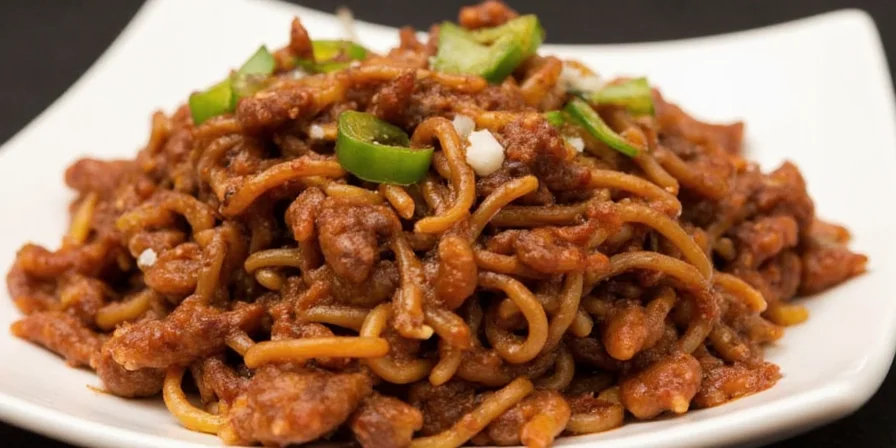
Filipino vs Mexican Adobo: Critical Differences You Must Know
Confusing these two leads to recipe failures. Understanding their origins prevents culinary mistakes:
| Characteristic | Mexican Chipotle in Adobo | Filipino Adobo |
|---|---|---|
| Base ingredients | Tomato, vinegar, smoked chipotle peppers | Vinegar, soy sauce, garlic |
| Primary purpose | Preserved smoked peppers with sauce | Cooking method/preservation technique |
| Flavor profile | Smoky, spicy, tangy, umami-rich | Savory, garlicky, vinegary |
| Common uses | Add flavor to soups, marinades, sauces | Main cooking liquid for meats |
| Substitution warning | Cannot substitute in Filipino recipes | Not equivalent to Mexican adobo sauce |
Key insight: Mexican adobo sauce functions as both a flavor enhancer and preservation method, leveraging vinegar's pH-lowering properties (below 4.6) to safely extend ingredient shelf life - making it valuable for waste-conscious cooking.
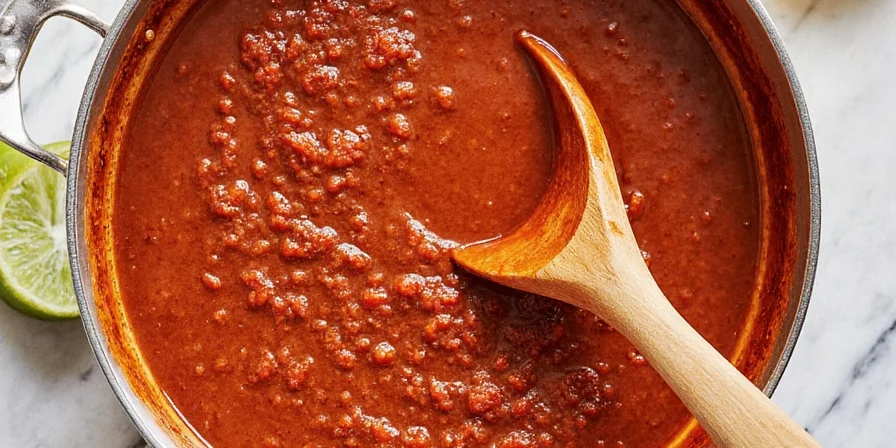
Key Ingredients and Their Flavor Chemistry
Mexican adobo's magic comes from synergistic ingredient interactions:
| Ingredient | Flavor Contribution | Practical Cooking Impact |
|---|---|---|
| Vinegar | Acidity that brightens flavors | Lowers pH for preservation; balances richness |
| Tomato paste | Umami depth and rich color | Creates base for complex sauces; adds body |
| Smoked chiles | Guaiacol compounds for smokiness | Provides signature flavor; adds moderate heat |
| Garlic | Savory, aromatic notes | Enhances overall flavor complexity |
| Spices | Warmth and complexity | Creates balanced flavor profile; counters sweetness |
This combination creates a flavor multiplier effect where the whole exceeds the sum of parts. Unlike standalone hot sauces, adobo integrates seamlessly into diverse dishes without overwhelming primary ingredients.
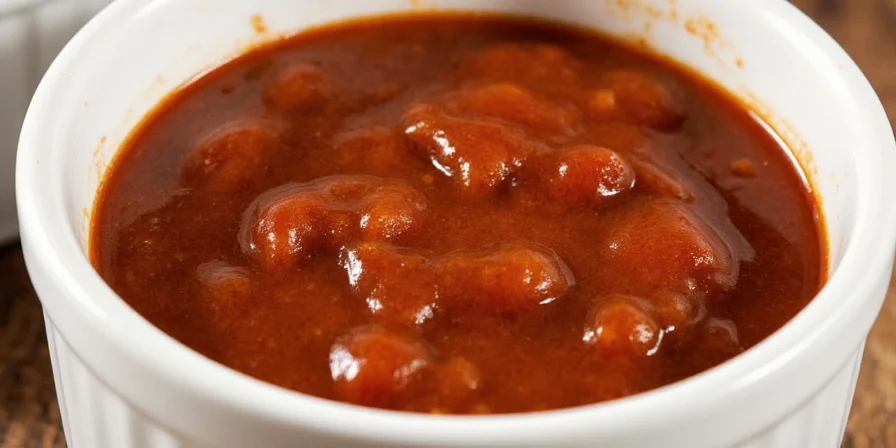
7 Practical Uses for Adobo Sauce in Everyday Cooking
Maximize your adobo investment with these tested applications:
- Instant flavor booster: Stir 1 tsp into canned beans or store-bought soups
- Leftover transformer: Revive stale grains by stirring in 1 tsp per cup
- Plant-based protein enhancer: Simmer with lentils for meaty umami in vegan dishes
- Quick pan sauce: Deglaze pans with broth + 2 tbsp adobo for instant gravies
- Breakfast upgrade: Fold into morning hash browns or scrambled eggs
- Marinade base: Mix with olive oil for chicken, fish, or vegetables (30 min minimum)
- Cocktail modifier: Add 5 drops to bloody mary mix for complex heat
Pro tip: Store opened adobo in an ice cube tray (1 tbsp portions) then transfer to freezer bag - preserves quality for 6+ months while allowing precise measurement.
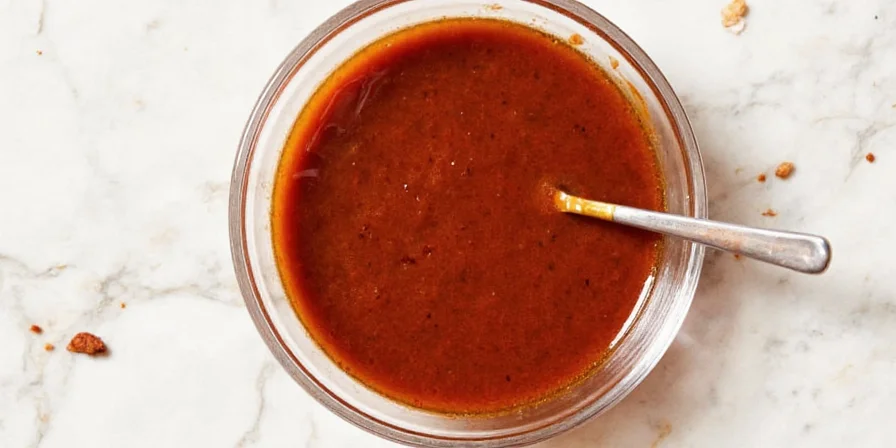
5 Science-Backed Techniques to Maximize Flavor
Optimize adobo's potential with food science principles:
- Acid balance hack: Counter excess vinegar with 1/4 tsp honey per tablespoon - balances pH while enhancing other flavors
- Heat modulation: Remove chipotle seeds before mincing to reduce capsaicin levels by up to 70%
- Flavor layering timing: Add early in cooking for integrated taste, late for bright punch (volatile compounds dissipate with prolonged heat)
- Texture control: Blend with broth for smooth sauces, use whole for rustic dishes - affects mouthfeel and flavor release
- Flavor amplification: Bloom spices in oil before adding adobo to unlock volatile compounds (heating in fat increases solubility of flavor compounds)
These techniques address common pain points like overwhelming heat or vinegar taste while maximizing flavor impact with minimal effort.
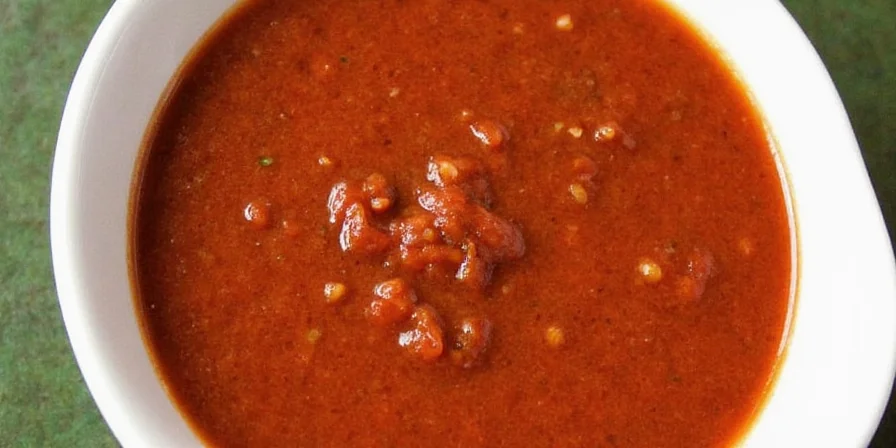
Top Searched Adobo Sauce Questions Answered
How long does adobo sauce last once opened?
Refrigerated adobo sauce maintains quality for 3-4 weeks. The vinegar content preserves it, but enzymatic browning occurs over time. For longer storage, freeze in 1-tbsp portions (lasts 6+ months).
Why does my adobo sauce separate?
Natural oil separation indicates no artificial stabilizers. Stir vigorously or briefly blend to recombine - this is actually a sign of quality in artisanal products.
Can I make adobo sauce less spicy?
Yes. Remove chipotle seeds and stems before mincing (contains 80% of capsaicin). For milder results, blend with equal parts tomato sauce or roasted bell peppers.
Is adobo sauce gluten-free?
Most commercial brands are naturally gluten-free, but always verify labels since some may use wheat-based thickeners in manufacturing facilities.
How does adobo differ from regular hot sauce?
Adobo contains tomato solids and spices creating complex flavor layers, while most hot sauces focus solely on chili heat and vinegar. Adobo functions as both seasoning and sauce base.
Can I substitute adobo in Filipino recipes?
No. Mexican adobo won't replicate Filipino adobo's soy-vinegar profile. For authentic Filipino dishes, use soy sauce, vinegar, garlic, and peppercorns instead.
What's the best way to use adobo in meal prep?
Freeze in 1-tbsp portions then add directly to soups, stews, or grain bowls during reheating - maintains flavor integrity while providing precise portions.
Why is my adobo sauce bitter?
Over-reduced sauces or burnt spices cause bitterness. Fix by adding 1/4 tsp honey and a splash of broth to balance flavors.
Final Thoughts: Maximizing Your Adobo Sauce Investment
Adobo sauce delivers exceptional value by solving multiple cooking challenges: adding restaurant-quality depth to weeknight meals, reducing food waste through natural preservation, and connecting home cooks to centuries of culinary innovation. Its unique balance of acidity, umami, and smoke makes it the ultimate flavor multiplier for time-pressed cooks seeking maximum impact with minimal effort. Keep a can stocked—it's not just a condiment, but your secret weapon for transforming ordinary ingredients into extraordinary meals.
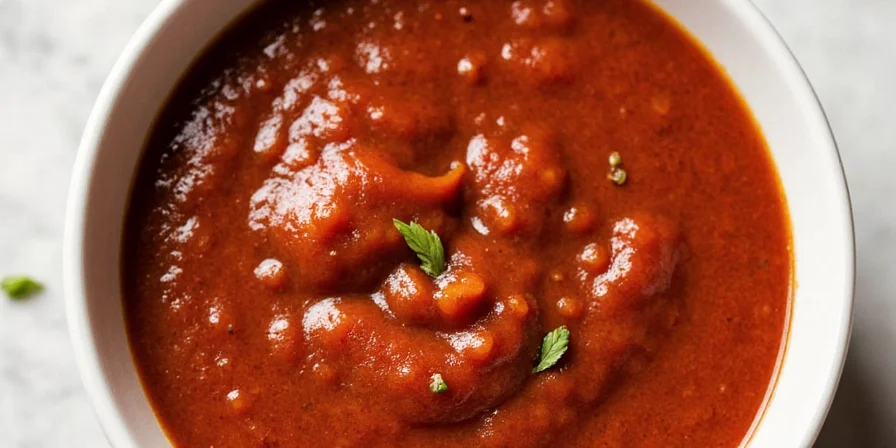
Master Your Pantry Staples
Discover science-backed techniques that transform basic ingredients into culinary triumphs—no fancy equipment required.











 浙公网安备
33010002000092号
浙公网安备
33010002000092号 浙B2-20120091-4
浙B2-20120091-4